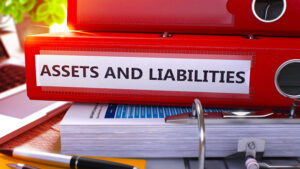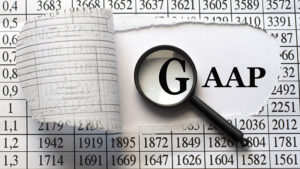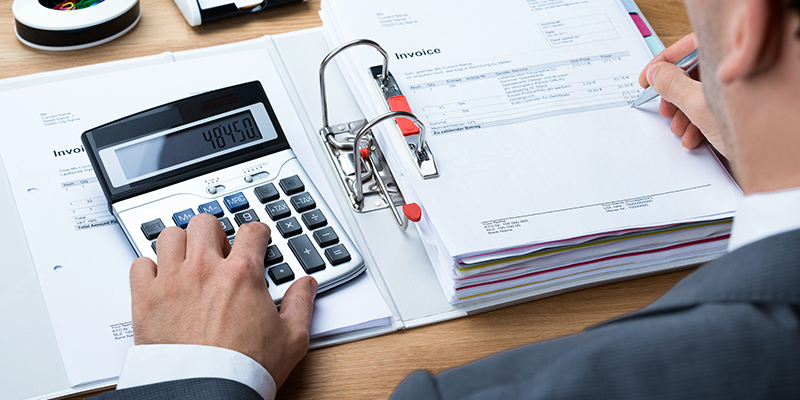An HOA general ledger is a valuable tool for tracking and measuring your association’s finances. But, many HOAs simply don’t realize how important this financial report is.
What Is an HOA General Ledger?
The general ledger is the prime repository of a homeowners association’s financial data. It serves as the association’s ongoing record of all financial transactions incurred by the HOA. This includes all assets, liabilities, income, and expenses. The entries come in the form of account titles and their corresponding numbers sourced from the chart of accounts.
While not technically considered as one of the financial statements of an HOA, the general ledger does serve as their pre-requisite or basis. Thus, it remains an essential tool in accounting and financial management.
How Often to Prepare an HOA General Ledger
Anyone who has ever worked with financial statements knows that these statements are prepared on a regular basis. Typically, this comes in the form of monthly, quarterly, or annual reports. The general ledger, though, is different.
Much like any other organization, homeowners associations must continuously update their general ledger. Whenever a financial transaction occurs, the general ledger must reflect that. For instance, if your HOA board made a cash payment to a vendor, that should immediately be accounted for within the general ledger. In doing so, you can look at your general ledger at any given time and be able to determine the association’s financial standing.
What Is Included in an HOA General Ledger?
 The general ledger acts as the master copy of all financial transactions in a homeowners association. It contains all accounting data, including those posted from your sub-ledgers and journals. Therefore, an HOA general ledger should include all incoming and outgoing financial transactions.
The general ledger acts as the master copy of all financial transactions in a homeowners association. It contains all accounting data, including those posted from your sub-ledgers and journals. Therefore, an HOA general ledger should include all incoming and outgoing financial transactions.
Ideally, you should keep a separate ledger for each account. For homeowners associations, that usually means keeping a ledger for an operational account and another for a reserve account. It is entirely possible for an HOA to maintain multiple ledgers simultaneously.
HOA General Ledger: Checking for Accuracy
As with many financial tools and records, the general ledger is not impervious to inaccuracies. Due to human error, the general ledger can end up reporting false numbers, causing great misinterpretations and distress to your board. Remember that all other financial statements use the general ledger as a basis, so it is crucial to maintain an accurate general ledger. A flawed ledger can lead to inexact financial reports, thereby resulting in misinformed decisions and financial ruin.
A good way to verify the accuracy of your general ledger is by cross-referencing it with other financial records. This includes bank statements, invoices, receipts, and the like. In doing so, you can avoid accidentally misreporting numbers. Practicing this regularly can also help prevent and thwart fraud.
The Importance of a Homeowners Association General Ledger
When you understand how HOA accounting works, it is easy to see why the general ledger is so critical to a homeowners association. After all, the general ledger is the foundation of HOA accounting. Without it, you have no way of tracking and updating your financial transactions. It is also impossible to prepare financial statements, such as the balance sheet and income statement, without the general ledger.
In addition to this, the general ledger makes it easy for your treasurer or accountant to prepare your tax returns. The general ledger compiles all financial data in one neat place, so you can quickly refer to it for any clarifications. In a way, it serves as a record of your financial history. As such, if you need to look back and check a transaction from years ago, you can always turn to your general ledger.
Types of Accounting Methods
The general ledger is a master repository of your association’s financial data, but it still follows a standard format. Every transaction affects at least two accounts. And while you can, in theory, simply write down all of your transactions as they are, adhering to the accepted format allows you to easily see the movement of accounts.
For general ledgers, there are three accounting methods homeowners associations can use — cash accounting, accrual accounting, and modified accrual accounting.
Cash Accounting
This method of accounting only tackles transactions made in cash. In other words, you will only record transactions that affect your cash account. When you earn revenue or incur expenses, such transactions will only appear on your general ledger when the money actually passes hands.
Cash accounting is, by far, the easiest approach to HOA accounting. This is because it involves the least amount of work and detail. Unfortunately, its simplicity is also its downfall, as the cash accounting method does not give you a very precise picture of your finances. Using this method may cause you to think you have more money than you actually do and end up overspending.
Accrual Accounting
 Accrual accounting is the most widely used approach because of its accuracy and reliability. It is also the only accounting method that conforms with the Generally Accepted Accounting Principles (GAAP).
Accrual accounting is the most widely used approach because of its accuracy and reliability. It is also the only accounting method that conforms with the Generally Accepted Accounting Principles (GAAP).
Using this method, you report both revenues and expenses when they happen as opposed to when money passes hands. The accrual approach involves the use of receivable and payable accounts.
For example, as soon as HOA fees become due and you send out the invoices, you will record them in your ledger, and the “Dues or Assessments Receivable” account will increase. When homeowners start paying their dues, this receivable account will decrease and your cash account will increase.
Modified Accrual Accounting
The modified accrual approach combines the principles of the first two methods. For this method, revenues follow the accrual approach and expenses follow the cash approach. You record revenues as you earn them instead of when you receive the money. In contrast, you record expenses when you disburse money instead of when you incur them. While the modified accrual method gives you an accurate view of your revenues, the same cannot be said about your expenses.
The Role of HOA Software
As you can see, the HOA general ledger is an indispensable financial instrument used as both a master repository and a basis for all other financial reports. Given how essential it is to any association, maintaining it should be a top priority for treasurers and HOA accountants. Unfortunately, not everyone who volunteers for a position on the board knows how to use the general ledger.
This is where Condo Manager comes in. We provide our clients with comprehensive HOA management software, complete with accounting and financial reporting capabilities. Our software is perfect for both self-managed communities and management companies looking to make HOA management easier. Call us today at (800) 626-1267 or contact us online for a free demo.
RELATED ARTICLES:
- 8 Things An Association Management Software Can Help Your HOA With
- 10 Best HOA Accounting Software
- What’s The Difference Between HOA Assessments And HOA Fees?



